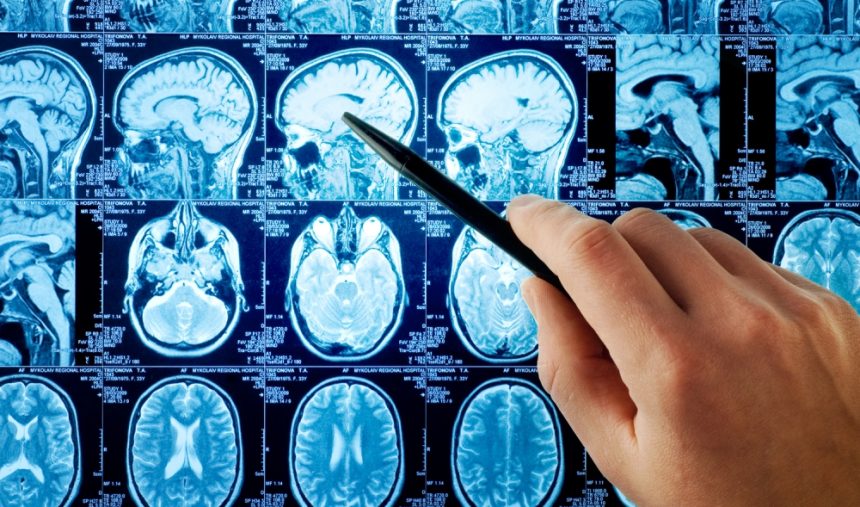Hello friends, today in this blog we will take some important information about Brain Tumor from expert and Indore’s best Neuro Surgeon Dr. Pranav Ghodgaonkar
What is a Brain tumor?
Brain tumor is a bunch of cells which behave abnormally and grow out of their size, number and function to form a mass of cells which are nonfunctional and create disturbances with functioning of otherwise normal brain. This bunch/mass of cells is called as a tumor. Not all tumor are cancers.
What are the complaints of patients having brain tumor?
Brain tumor symptoms include a persistent headache and/or vomiting, nausea. Seizure is also an important and serious symptom.Other symptoms that the patients most often experience include the following:
- Balance problems
- Weakness in any one portion of the body
- Problems with memory, concentration or intellectual functions.
- Personality, behavioural changes.
- Changes in vision, smell, hearing or speech etc.
How to diagnose Brain Tumor?
For a promising brain tumor treatment, the first step is to diagnose the type and location of tumor. There are various methods which includes the CT scan, X-Rays, MRI scan, biopsy, Complete Blood Count (CBC), and clinical examination.A detailed neurological examination and MRI SCAN often helps to conclude the diagnosis.
A close check-up of the eye is also important to check for swelling which may be caused due to a tumor pressing on the nerves in the brain and the eye.
Correct diagnosis will help confirm whether the patient is actually suffering from a brain tumor or not, identify the stage of cancer and also figure out the extent of its spread.
- Brain tumor diagnosis is primarily done with the help CT scans and MRIs.
- Another popular diagnostic procedure called PET scan measures the activities in the brain and transmits a signal to the computer by creating a live image. Surgeons generally refer to PET scans to spot the difference between recurring tumor cells, scar tissues, and necrosis.
- A biopsy is yet another procedure used by a pathologist to discriminate the normal cells from the abnormal cells. A biopsy result may show signs of cancer through tissue changes. During a biopsy, a piece of tissues suspected to be affected by cancer is looked under a microscope. Cancer cells, thus, are differentiated from normal brain cells and brain cancer diagnosis is established.
What are the various types of brain tumors?
There are over 140 different types of brain tumors, which are classified into two main types – primary or metastatic brain tumors. Primary tumors are less dangerous as they stay intact inside the brain and do not spread outside. On the other hand, metastatic tumors usually grow in other parts of the body, but eventually spread to the brain via blood tissue or lymphatic nodes. Although there is no proven cause of brain tumor, the reasons for its growth are attributed to genetic disorders traced back to family histories such as neurofibromatosis, tuberous sclerosis, Li-Fraumeni syndrome, Hippel-Lindau disease, weak immune system and exposure to radiation Brain tumor can be of different types, depending on the exact location where it forms. Some of the most popular brain tumors include the following:
- Astrocytoma or Glioma
- Meningioma
- Acoustic Neuroma
- Brain Stem Glioma
- Medulloblastoma
The most complicated type of brain tumor is Glioblastoma ( WHO Grade IV)
What are the different treatments for Brain Tumor?
By far, surgery is the best brain tumor treatment. While non-cancerous tumors are most suited for surgical procedures, cancerous tumors are attended by surgery along with radiation or chemotherapy.
Brain tumor surgery is done with an objective of ensuring a longer life and paving way for highly effective chemotherapy or internal radiation. In addition, it provides a pathway for delivering the best intra-surgical treatments such as hyper therapy or laser surgery that lead to elimination all of a tumor.
Frequently Asked Questions (FAQs) about Brain Tumor Surgery in India
Q: What care is to be taken after Brain Tumor Surgery?
Post-surgery, patients are generally recommended to regularly undergo physiotherapy, speech therapy, and occupational therapy sessions. The motive of these therapies is to speed up the recovery and to help patients continue their normal daily activities without any hindrance.
Q: What are the chances of surviving brain cancer?
The chances depend on the type, stage, and grade of breast cancer. Children are more likely to survive as compared to adults.
Q: What are the possible risks of brain surgery?
Problems with speech, muscle weakness, coordination problems, and difficulty in balancing are some of the potential risks of brain surgery.
Q: How long does it take to remove a tumor from the brain?
Brain surgery for tumor removal may take anywhere between four to six hours.
Q: Can you drive a car after brain surgery?
Whether you can drive a car or not depends on the type of surgery conducted. You cannot drive for at least six months after having a craniotomy.
Q: Can brain surgery affect memory?
Brain surgery, radiation therapy, and chemotherapy may affect memory but in rare cases. Brain surgery may cause swelling in the brain, which can affect its functioning. Memory-related problems are one such example but it is temporary.
I hope the above article will help you in resolving all your queries and given you Important Information about Brain Tumor. If you have any queries unresolved or want to consult Best Neuro Surgeon in Indore Dr. Pranav Ghodgaonkar at Anaya Neuro Care Centre is the specialist service in Indore for the treatment and rehabilitation of neurological conditions such as stroke, multiple sclerosis, parkinsons, dropped foot, head injury and other disorders.

